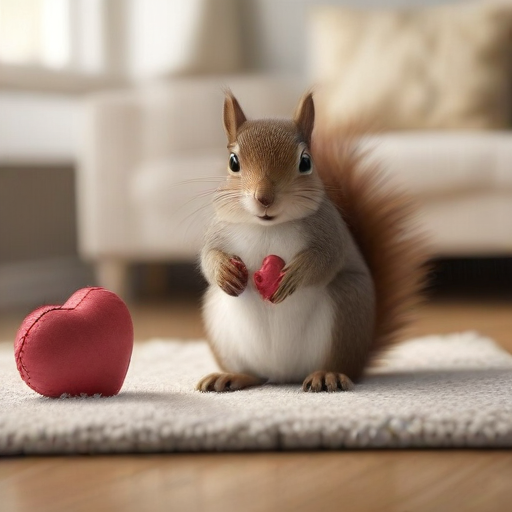Peanut the Squirrel, a popular social media star with over half a million followers on Instagram, was taken from his owner, Mark Longo, this week by the New York Department of Environmental Conservation (DEC). Longo’s beloved pet was confiscated from their home in Pine City, New York, amid concerns regarding the illegal keeping of wildlife. According to the DEC, their investigation was prompted by reports suggesting unsafe housing conditions that could present rabies risks.
In a poignant Instagram post, Longo expressed his shock and sorrow over the situation, revealing that Peanut was taken for euthanasia. He described Peanut as not just a pet but his closest companion for seven years. The emotional outcry from fans has led to a petition on Change.org, gathering nearly 25,000 signatures, urging the DEC to reconsider their decision and allow Peanut to return home. Additionally, a GoFundMe campaign was launched to cover legal expenses, raising over $6,500 thus far.
Peanut has captured the hearts of many with over 1,400 joyful posts showcasing his playful antics and bond with Longo. The two became inseparable after Peanut, an orphaned squirrel, was saved by Longo following a tragic incident that claimed his mother. Despite initial attempts to release Peanut back into the wild, he proved to be a loyal companion, returning home shortly after his release.
This situation sheds light on the complexities surrounding wildlife care regulations. While the DEC emphasizes the importance of appropriate wildlife rehabilitation, the love and attachment formed in situations like Longo and Peanut’s can complicate the legal framework. Longo’s story has inspired many, showcasing not just Peanut’s journey, but also the love and joy that pets, even unconventional ones, can bring into our lives.
As the community rallies behind Longo and Peanut, there remains hope for a positive outcome. The compassion shown by fans, along with the efforts to address the difficulties in caregiving for wild animals, may contribute to changes in policy and greater awareness about the responsibilities that come with rescuing wildlife.
